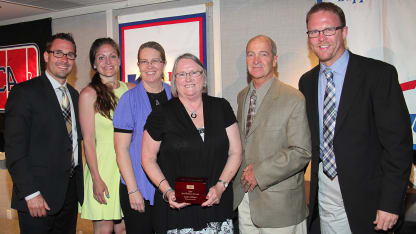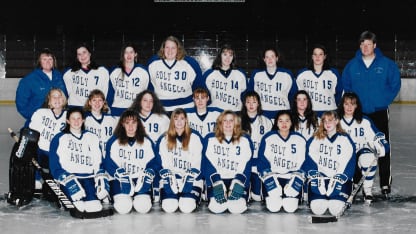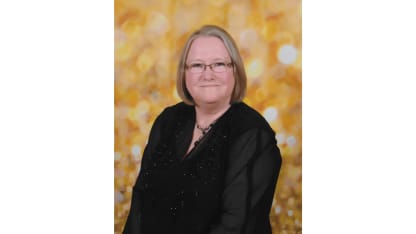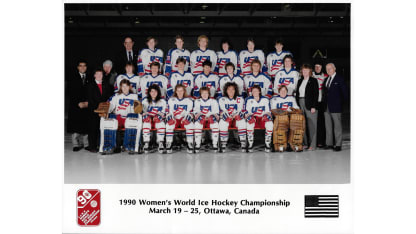"As they got a little older, I went out to look for someplace for them to play," Olson said. "But there was nothing organized."
Olson's search became a crusade that made her a pioneer who helped girls and women's hockey grow in her home state of Minnesota, established one of the most successful women's hockey programs in the NCAA and brought the women's game to the Winter Olympics.
"My spirit just wanted to see that we women and girls were allowed to participate in this terrific sport of ice hockey, no holds barred," she said.
The fierce but soft-spoken trailblazer is the recipient of the 2020 Lester Patrick Trophy for outstanding service to hockey in the United States and will be honored at the 2021 U.S. Hockey Hall of Fame induction ceremony in Denver on Thursday with Stan Fischler, Paul Holmgren and Peter McNab. The Class of 2020 (Dean Blais, Tony Granato, Jenny Potter and Jerry York) will also be inducted, one year after their ceremony was postponed by the coronavirus pandemic. Jack Barzee, the 2021 Lester Patrick Trophy winner, will also be honored.
Olson said she's flabbergasted about receiving the trophy, which was presented to the NHL by the New York Rangers in 1966 to honor Patrick, who spent 50 years in hockey as a player, coach and general manager, and was a pioneer in the sport's development.
"I was very surprised but feel very honored that they awarded this to me," she said.
The honor comes as no surprise to those who know the 70-year-old native of Richfield, Minnesota.
"Lynn saw what the future could look like when others didn't and made sure it happened," said Mike Snee, a Minnesota resident and executive director of College Hockey Inc. "What we take as normal today -- walking into an arena and seeing tons of girls playing hockey, walking in the concourse of a college game or a (Minnesota) Wild game or anywhere else and seeing tons of girls in hockey jackets and hanging with their teammate -- Lynn saw it years before it happened."
Olson helped organize the Minnesota Women's Hockey League (now called the WHAM) and was elected president in 1984. She brought the organization together with the Minnesota Amateur Hockey Association in 1986 and was the league's women's director until 2007.
Her advocacy helped prompt the Minnesota State High School League to sanction girls ice hockey as a varsity sport in 1994, making it the first state high school association in the United States to do so. Minnesota now boasts 116 high school programs and is a major source for NCAA women's players with Xcel Energy Center, home of the Wild, annually hosting a two-class state tournament.







